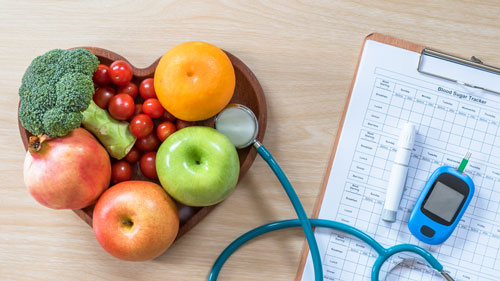We’ve told you for years that statin drugs are of questionable valuable when it comes to preventing heart disease. And now, thanks to new research, mainstream doctors are starting to come around to our way of thinking.
Under current U.S. guidelines, 40% of American adults should be on a statin drug.
We recently told you about a major new review that debunked the studies used to justify those guidelines. The review found that using statins to lower so-called “bad” LDL cholesterol does not prevent heart disease.
Now, another study confirms that the harms of statins often outweigh the benefits.
The research was published in the Annals of Internal Medicine. Dr. Milo Puhan of the University of Zurich was senior author. 1
Dr. Puhan and his colleagues found that statins barely move the needle when it comes to heart health…
Up to 200 people would need to take them every day for five years to prevent even a single heart attack.
The study also concluded that current statin guidelines do not give enough weight to the harm statins cause.
Statin side effects include muscle pains and higher risk of diabetes. And the older you are, the more the barely-there benefits of statins diminish compared to the harms.
“The elderly do not benefit as much as previous studies might have thought,” said Dr. Puhan. “One size doesn’t fit all. That’s a very important message.”
4 Natural Heart Health Solutions
More and more studies are calling into question the value of statins. There are more effective, less risky ways to improve your heart health:
- Take omega-3 fatty acids. A study published in the journal Tanaffos found that consumption of omega-3s is linked to lower triglycerides, lower blood pressure, and reduced risk of death from heart disease.2You can get omega-3s in flaxseed, walnuts, and chia seeds. Also fatty fish such as salmon, tuna, and mackerel. And supplements are widely available as well.Most fish oil supplements are made with a cheap manufacturing process that yields something called an ethyl ester (EE). This kind of fish oil is less bioavailable. Labels of EE fish oil often say the product is derived from “marine oil concentrate.”Instead, look for brands that contain the triglyceride form of fish oil. It should be noted on the label.3
- Make it intense. High-intensity interval training (HIIT) may be the best form of exercise for your heart. It requires a fraction of the time of traditional cardio workouts.4The principle is simple…HIIT is adaptable to many different activities. This includes running, biking, swimming, calisthenics, or using a rowing, stair climber, or elliptical machine.Warm up for three to five minutes doing your chosen form of exercise. Then do the exercise at the highest intensity level you can for the next minute.Slow down for the next minute or two to catch your breath. Then go hard again for another minute.
Repeat this process five to seven times. Afterward, do the activity slowly for at least two minutes to cool down.
The idea is to push your body for a brief burst, and then allow it to recover. HIIT allows you stay in great shape even when you don’t have time for a long workout.5
- Take potassium. Most people get way too much sodium in their diets and not enough potassium. If the two minerals are out of whack in your system, it can lead to high blood pressure. One study found that adding potassium to your diet will lower blood pressure.6
Great sources include avocado, tomato sauce, watermelon, winter squash, sweet potatoes, spinach, and beets.You’re probably wondering why we haven’t mentioned bananas. They are probably the best-known high-potassium food. But they have significantly less than the foods mentioned above.
We don’t recommend potassium supplements. They can be tricky to take. Take too much and it can trigger heart rhythm problems.
- Don’t eat inflammatory foods. Chronic inflammation is a major factor in many serious diseases, including cancer and heart disease. So avoid foods that cause inflammation. The worst offenders are sugar, high-fructose corn syrup, trans fats (often found in processed foods), most vegetables oils except olive and coconut, and processed meats, such as cold cuts and beef jerky.
Editor’s Note: If you’re interested in finding out more about dangerous prescription drugs, you should read our report, The Top 10 Dangerous Pharmaceutical Drugs—And Their Natural Alternatives. Millions of Americans are taking these hazardous pills. There’s a good chance someone you love is endangering his or her life. And they may have no clue.
Related Articles
New Statin Danger Revealed
High Cholesterol Can Be Good for Seniors
Forget About Cholesterol… Here’s a Better Marker for Heart Health
Like this Article? Forward this article here or Share on Facebook.
References:
1 http://annals.org/aim/article-abstract/2717730/finding-balance-between-benefits-harms-when-using-statins-primary-prevention
2 https://www.ncbi.nlm.nih.gov/pmc/articles/PMC4153275/
3 https://www.institutefornaturalhealing.com/2018/10/fish-oil-fights-depression/
4 https://www.webmd.com/fitness-exercise/guide/exercise-healthy-heart#1
5 https://www.institutefornaturalhealing.com/2018/11/high-intensity-exercise-benefits-reach-the-cellular-level/
6 https://www.ncbi.nlm.nih.gov/pubmed/21403995

